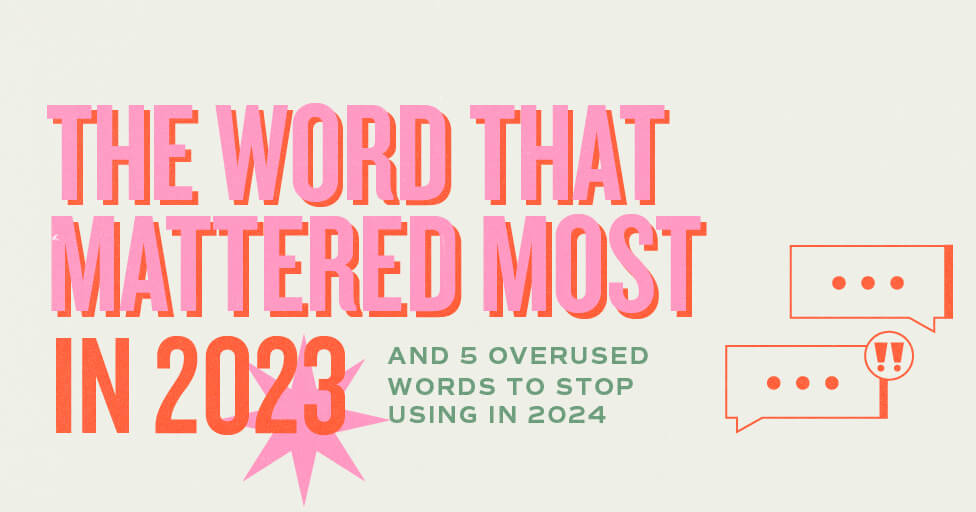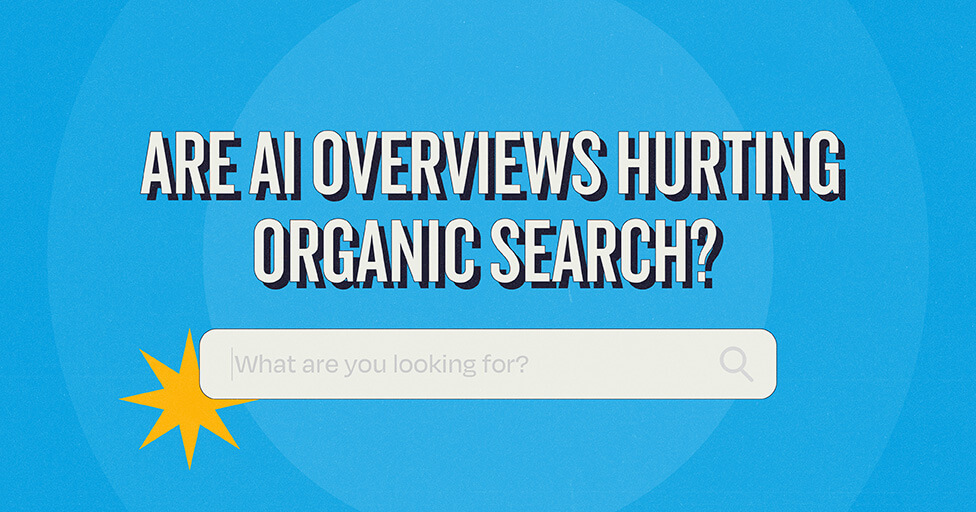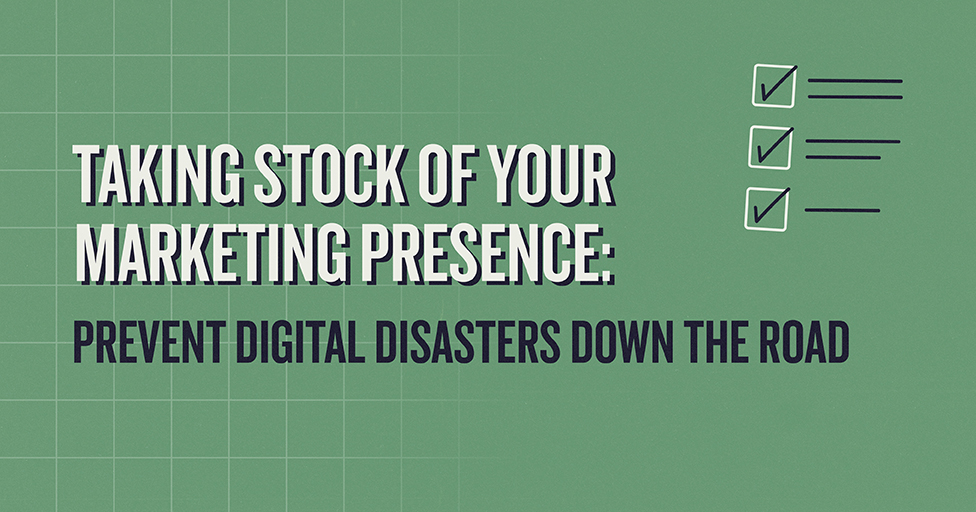
It’s about this time every year that major brands like Spotify, Meta, Google and many others come out with their “Year in Review” campaigns. While some—like Spotify’s Wrapped—reflect an individual’s music preferences over the past 12 months, others—like Google’s Year in Search—help us see what society endured together over the course of a year. Though all equally compelling and insightful, it’s always Merriam-Webster’s Word of the Year that piques my interest most. As a copywriter, this tracks. But it’s also the fact that a singular word holds enough power to depict an entire society that really amazes me.
If we look at Merriam-Webster’s “Word of the Year” from the past, we see a trend. In 2022, the word was “gaslighting.” 2021, “vaccine.” 2020, “pandemic”—of course. And in 2019 the word was “they.” A quick glance at these words and there is no glaringly obvious connection between them. For example, what does “they” have to do with “pandemic”? Nothing. Except for the way these seemingly typical words nonchalantly entered our everyday vernacular and stuck. They came and never left. In 2021, we started talking about vaccines so often (and so confidently), you’d think we were the scientists developing them. Vaccines were nothing new to anyone, and yet they became such a staple in our daily conversations that they defined an entire year. “Gaslighting,” same story. It was not a new word by any means. And no one event in 2022 made “gaslighting” the word of the year. In fact, it was first highlighted in the media in 2016. But—due to social media and other contributing factors—the word became so mainstream, it was written in history.
Merriam-Webster named “authentic” as the 2023 Word of the Year, and for good reason. Given the buzz around deepfake, the jump in AI technology, and the advancement of camera filters, it is no surprise that society is searching for true authenticity, more than anything else. After all, we are now a society that cannot tell the difference between fact and fiction. Social feeds are curated. Social posts are edited. Even social influencers, like artificial intelligence influencer Aitana Lopez, are fake. Combined, this not only creates unrealistic expectations for society but, more so, makes us question the society in which we live.
“Authentic” is not new to our vernacular, but it will certainly be a word we hear more in 2024. So, let’s talk about the words that we’d like to not hear next year.
We had MBBers weigh in on the topic and, given that the age range of MBB employees spans 40 years, it was no surprise the range of words was vast as well. While all submissions were considered, even Oxford’s Word of the Year ‘Rizz,’ we felt it was important that the words reach ubiquity (think, Gen X terminology) before being added to the retirement list. Newer slang—like “ship” and “sus”—was omitted for likely having a short shelf life or, honestly, being nothing more than an abbreviation. Without further ado, here is our list of top five words we will not being saying in 2024.
1. GOAT.
When everything is the GOAT, nothing is the GOAT. While I have no doubt that the most common demographic to use this word is males between the ages of 12 and 44, they’ve overused it enough for all of us. So, unless you’re referring to Patrick Mahomes, let’s leave GOAT in the past where it belongs.
2. “I did a thing.”
Vague, overused, and totally cheeky. The elimination of this phrase doesn’t deserve much more explanation. Sure, it’s a phrase—not a word. But the combination of these four words makes people shudder. In 2024, just go ahead and tell us what you did. We’ll be really proud.
3. “In my __ era.”
As a Kansas City-based agency, we’ve all been in our Taylor era for a while now. We thought the Taylor obsession had peaked this summer during the Eras tour, but little did we know, that was just the beginning. We love Taylor. We love Travis. But it’s time for us all to move on with our lives. And to stop manipulating her songs to be part of our everyday conversations. So, if any T.Swift lyrics are part of your personal banter (think: “Hi, it’s me, I’m the problem), it’s time to not do that anymore.
4. 💀 (Or Dead).
We can’t help but wonder—why is all of our modern-day slang so bleak? Overused—both as a word and an emoji—dead needs to, ya know…💀. That’s it. Moving on.
5. Slay.
Slay, defined as “someone who has done so exceptionally well that they killed it,” can rarely be found without its equally sadistic partner, “girl.” Used together, it’s cringy and simply cannot be taken seriously. Use it one more time before the end of the year (concerning Santa only), then call it good.
In the spirit of 2023’s focus on “authenticity,” if you want your brand to find a voice that’s distinctly nuanced enough to stand out, MBB would be happy to help.
Subscribe to our newsletter
Get our insights and perspectives delivered to your inbox.


